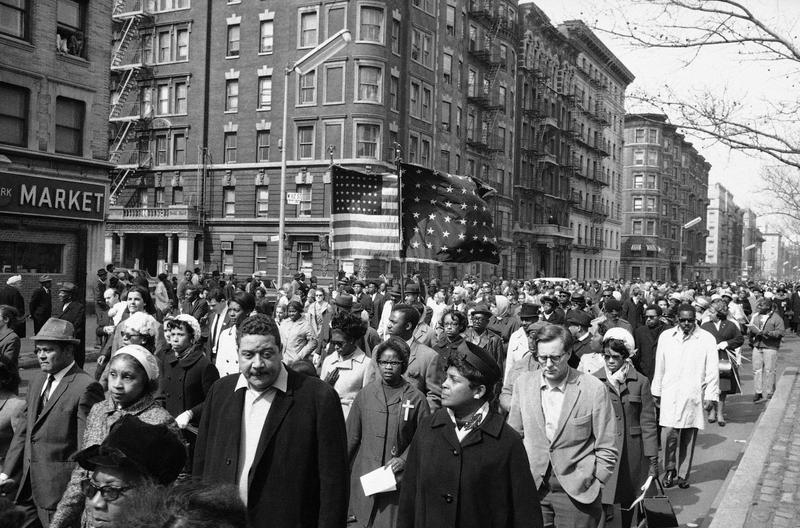
As news spread of Martin Luther King Jr.'s assassination in Memphis, Tenn., thousands of people took to the streets across the country in grief and anger. Newark, Baltimore, Chicago and Washington D.C. saw widespread protests, deaths and injuries, heavy police and military presence, and property destruction.
Although there were reports of fires and property damage, New York City remained relatively calm on the evening of April 4, 1968. One possible reason for the absence of violence and chaos, according to some historians, is Mayor John Lindsay's trip to Harlem soon after he heard the news.
"It became clear that there were people out in the streets in Harlem that night, and that's where he needed to be," said Clay Risen, author of A Nation on Fire: America in the Wake of the King Assassination.
Footage courtesy of the NYC Municipal Archives with assistance from the Museum of the City of New York.
Addressing reporters the following day, Lindsay said he witnessed widespread grief and loss among the community in Harlem.
"I most certain found the mood in New York City during my tours last night to be one of great grief, emotion, very deep emotion, with people weeping, and frustrated and lonely. And terribly lost and let down," Lindsay said.
Lindsay was a progressive Republican in an era fraught with racial tension and class division. He had shown himself to be an advocate for civil rights long before the moment he stepped out into Harlem that night, according to Errol Louis, an NY1 news anchor and former director of urban reporting at CUNY's Graduate School of Journalism.
"All of his career leading up to that he was taking some very unpopular political stands that would be unthinkable for a Republican in the current generation," Louis told WNYC's Jami Floyd.
The mayor's actions on that night alone cannot explain the lack of an uprising in New York City, said Louis.
Fifty years after the assassination of Martin Luther King Jr., Louis said New York City could use more political leaders who insist on solving the issues the civil rights leader passionately pursued.
This is the first segment in a series from WNYC called 1968: 50 Years Later.
